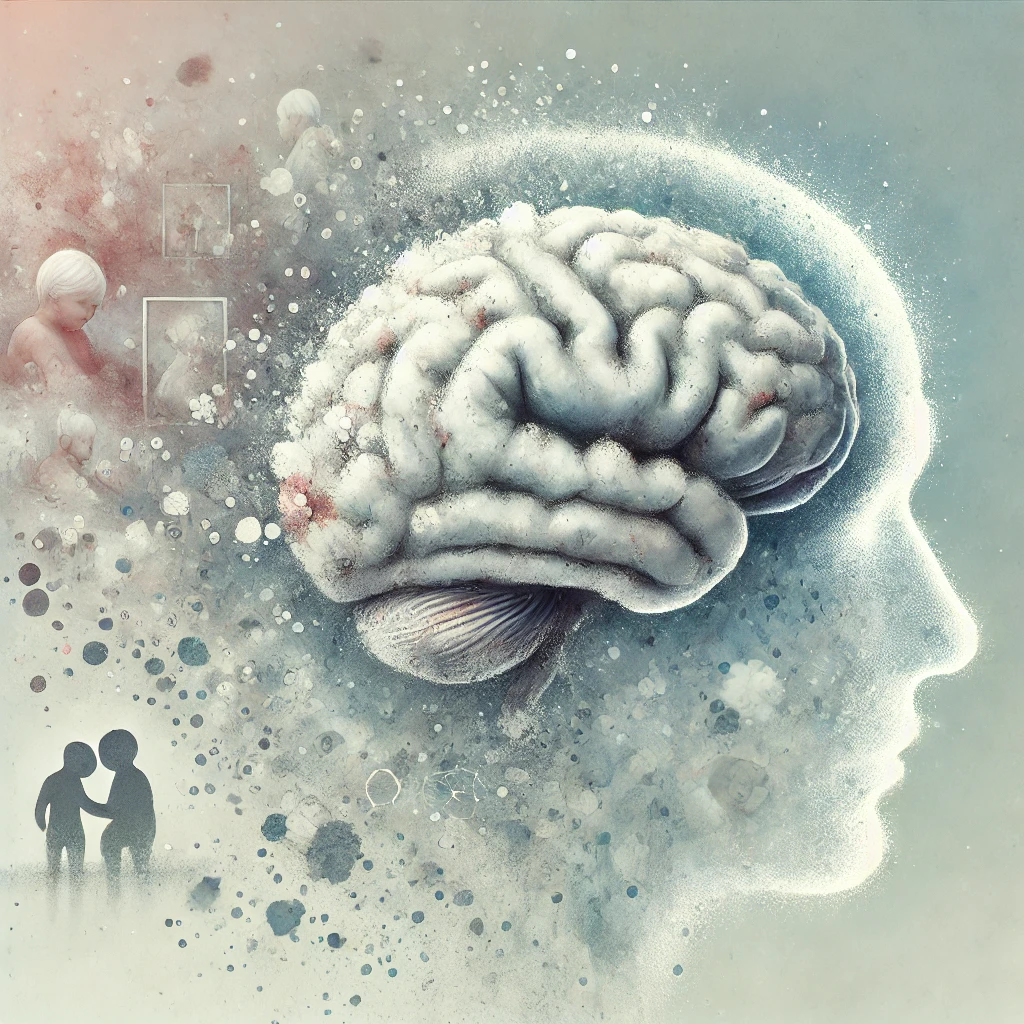Alzheimer’s Disease: Evidence-Based Information
Alzheimer’s disease is a progressive neurological condition that leads to brain shrinkage and the death of brain cells. It is the most common cause of dementia, characterized by a persistent decline in mental, behavioral, and social skills, significantly impairing daily life. While Alzheimer’s disease is not a normal part of aging, it predominantly affects older individuals. Early symptom recognition and understanding potential causes play a critical role in effective disease management.
What Is Alzheimer’s Disease?
Alzheimer’s disease causes degeneration and death of brain cells, disrupting brain function. This results in memory loss, reduced cognitive abilities, and behavioral changes. As the disease progresses, individuals gradually lose various skills, eventually leading to a loss of independence.
Causes of Alzheimer’s Disease
Although the exact cause of Alzheimer’s remains unknown, researchers believe the disease is triggered by a combination of genetic, lifestyle, and environmental factors that affect the brain over time. Some of the risk factors include:
- Genetics: Family history plays a role. Those with parents or siblings affected by Alzheimer’s are at slightly higher risk of developing the disease.
- Age: Aging is the most significant risk factor. The likelihood of developing Alzheimer’s doubles every five years after age 65.
- Lifestyle and Health Factors: A sedentary lifestyle, smoking, unhealthy diet, and chronic stress may contribute to Alzheimer’s. Other risks include high blood pressure, obesity, diabetes, and high cholesterol.
- Head Injuries: Severe or repeated head trauma increases the risk of developing Alzheimer’s later in life.
- Brain Changes: Alzheimer’s is characterized by two primary brain changes: amyloid plaques and tau tangles. Plaques are protein clusters that accumulate between nerve cells, while tangles are twisted proteins inside cells. These changes disrupt cell function and ultimately cause cell death.
Early Symptoms of Alzheimer’s Disease
Early diagnosis is crucial for managing Alzheimer’s disease. Some initial symptoms include:
- Memory Loss: The most common symptom, especially frequent forgetfulness of recent events or important information.
- Difficulty with Planning and Problem Solving: Trouble performing tasks that require focus, such as managing finances or following a recipe.
- Disorientation in Time and Space: Losing track of dates, days, or locations.
- Visual and Spatial Issues: Difficulty reading, judging distances, or distinguishing colors and contrasts.
- Speech and Writing Problems: Difficulty maintaining conversations, finding words, or clearly expressing thoughts.
- Losing Items and Forgetting Their Location: Misplacing objects and occasionally blaming others for their disappearance.
- Poor Judgment or Decision Making: Financial errors or neglecting personal care.
- Withdrawal from Work or Social Activities: Avoiding social interactions or hobbies.
Preventing Alzheimer’s Disease
While there is no definitive way to prevent Alzheimer’s, certain lifestyle changes can reduce the risk:
- Exercise Regularly: Physical activity improves blood circulation to the brain, supporting cognitive health. Aim for 150 minutes of moderate aerobic activity weekly.
- Adopt a Heart-Healthy Diet: A diet rich in fruits, vegetables, whole grains, lean protein, and healthy fats, like the Mediterranean diet, supports brain health.
- Stay Mentally and Socially Active: Reading, solving puzzles, and learning new skills keep the brain engaged, while social connections provide emotional and mental support.
- Prioritize Quality Sleep: Poor sleep is linked to an increased risk of Alzheimer’s. Aim for 7–8 hours of sleep per night.
- Manage Cardiovascular Health: Since heart and brain health are connected, controlling blood pressure, cholesterol, and blood sugar can reduce Alzheimer’s risk.
- Avoid Smoking and Limit Alcohol: Smoking increases dementia risk, while excessive alcohol use damages brain cells.
- Protect Your Head: Wear seat belts, helmets, and take precautions to avoid head injuries.
Conclusion
Alzheimer’s disease remains one of the most serious health challenges among aging populations worldwide. While its exact cause is unknown, understanding its symptoms and risk factors can aid in early diagnosis and better management. By maintaining a healthy lifestyle, staying mentally active, and undergoing regular health checkups, you can reduce your risk and delay the onset of Alzheimer’s symptoms.
Alzheimer’s Disease: Understanding the Symptoms, Causes, and Care
Alzheimer’s disease is a progressive neurodegenerative disorder that primarily affects memory, thinking, and behavior. It is the most common cause of dementia, accounting for 60-80% of dementia cases worldwide. While it typically develops in individuals over the age of 65, early-onset Alzheimer’s can occur in younger people. Understanding Alzheimer’s disease is essential for recognizing its symptoms, addressing its challenges, and providing appropriate care.
The hallmark symptom of Alzheimer’s disease is memory loss, particularly difficulty recalling recent events or newly acquired information. As the disease progresses, memory loss becomes more severe and affects long-term memories, making it difficult for individuals to recognize familiar faces, places, or objects. Additional cognitive impairments include difficulty solving problems, planning tasks, or following conversations, as well as confusion about time and place.
Behavioral and psychological changes often accompany cognitive decline. Individuals may exhibit mood swings, irritability, depression, or anxiety. They may also experience personality changes, such as becoming withdrawn, suspicious, or overly dependent on others. In advanced stages, individuals may lose the ability to communicate effectively, perform daily activities, or care for themselves.
The exact cause of Alzheimer’s disease remains unclear, but researchers believe it results from a combination of genetic, environmental, and lifestyle factors. A key feature of Alzheimer’s is the accumulation of abnormal protein deposits in the brain, including beta-amyloid plaques and tau tangles, which disrupt the function of neurons and lead to their death. Risk factors include advanced age, family history of the disease, certain genetic mutations, and conditions like cardiovascular disease or diabetes. Lifestyle factors, such as poor diet, lack of physical activity, and chronic stress, may also contribute.
Diagnosing Alzheimer’s disease involves a thorough evaluation by healthcare professionals. There is no single test for the disease; instead, diagnosis is based on medical history, cognitive and neurological assessments, and brain imaging techniques such as MRI or CT scans to rule out other conditions. Biomarker tests, including spinal fluid analysis or advanced imaging, may help confirm the presence of beta-amyloid plaques or tau proteins.
While there is currently no cure for Alzheimer’s disease, treatments focus on slowing its progression and managing symptoms. Medications such as cholinesterase inhibitors (e.g., donepezil, rivastigmine) and NMDA receptor antagonists (e.g., memantine) can help improve cognitive function and reduce behavioral symptoms in the early to moderate stages of the disease. Newer therapies targeting beta-amyloid plaques are also being developed and show promise in clinical trials.
Non-pharmacological interventions are equally important in managing Alzheimer’s. Cognitive therapies, such as memory training or structured activities, can help individuals maintain their mental abilities for longer. Creating a safe and supportive environment, using visual cues and reminders, and establishing a consistent daily routine can reduce confusion and anxiety. Engaging in meaningful activities, such as music therapy, art, or gentle exercise, can improve quality of life.
Caring for someone with Alzheimer’s disease presents unique challenges. Caregivers often face emotional, physical, and financial strain. Accessing support groups, counseling, and respite care can provide much-needed relief and help caregivers navigate the complexities of the disease. Education about Alzheimer’s and practical strategies for managing behaviors and symptoms can empower caregivers to provide better care.
Prevention strategies for Alzheimer’s disease focus on promoting overall brain health. Regular physical activity, a diet rich in fruits, vegetables, whole grains, and healthy fats, and staying socially and mentally active can reduce the risk of cognitive decline. Managing chronic health conditions, such as hypertension or diabetes, and avoiding smoking and excessive alcohol consumption are also critical for brain health.
In conclusion, Alzheimer’s disease is a complex condition that requires a combination of medical, emotional, and practical approaches to manage its impact. Early recognition of symptoms, access to treatment, and comprehensive support for patients and caregivers are essential in addressing the challenges of Alzheimer’s. By promoting brain health and advancing research, we can work towards improving the lives of those affected and finding solutions for this devastating disease.

















Pingback: Live Longer, Live Better: Modern Strategies and Medications for Longevity - Medhouse.info